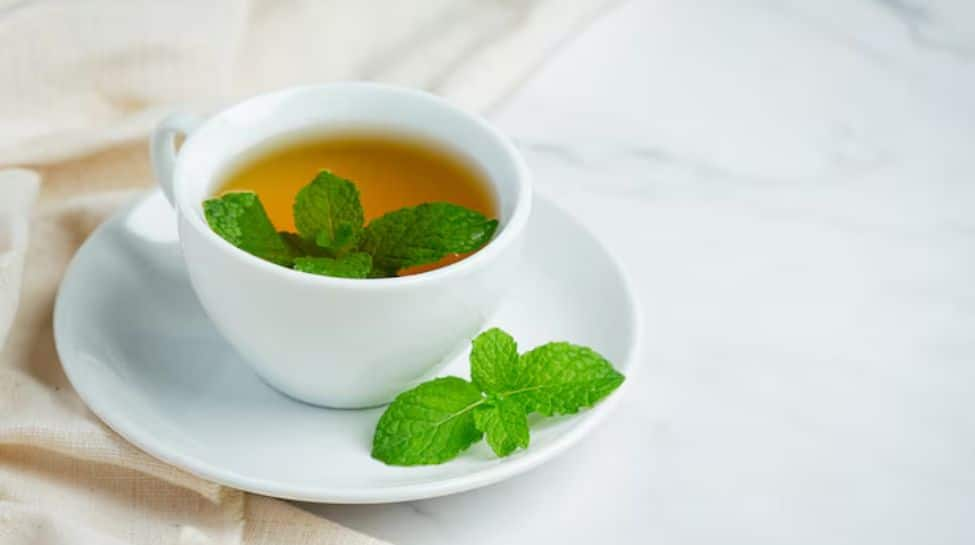The monsoon season brings much-needed relief from the scorching summer, but along with the cool breeze and lush greenery comes a spike in seasonal infections. Colds, fevers, indigestion, and skin flare-ups become common as the damp weather, temperature fluctuations, and weakened digestive fire (agni) create an ideal environment for pathogens to thrive. According to Ayurveda, this time of year—known as Varsha Ritu— is when the body’s natural immunity tends to be at its lowest.
To counter this, Ayurveda recommends a seasonal routine that supports balance and boosts immunity. Among the many preventive strategies, the use of time-tested Ayurvedic herbs stands out for its effectiveness. Here are 5 powerful herbs as shared by Danny Kumar Meena, Founder & CEO at Girlyveda, that can help your body stay strong and protected during the rainy season:
1. Tulsi (Holy Basil)
Often referred to as the “Queen of Herbs,” Tulsi is revered in Ayurveda for its strong antimicrobial and adaptogenic properties. It supports the body’s natural defense mechanisms, especially the respiratory system, making it ideal for fighting off colds, coughs, and throat infections common during the monsoon. Tulsi helps clear mucus, reduce inflammation, and enhance the body’s ability to cope with stress—both physical and environmental.
2. Ashwagandha (Withania somnifera)
Ashwagandha is a powerful rejuvenating herb that strengthens the immune system by reducing cortisol levels and enhancing the body’s resilience to stress. In the monsoon, when people often feel more fatigued or anxious due to the weather and low energy, Ashwagandha helps maintain balance. Its immune-boosting and vitality-enhancing properties make it a great ally for overall wellness during seasonal transitions.
3. Giloy (Tinospora cordifolia)
Also known as Guduchi, Giloy is one of the most potent immunity-enhancing herbs in Ayurveda. It improves the function of white blood cells, detoxifies the body, and combats chronic fevers and respiratory infections. Giloy is especially beneficial during the monsoon, as it supports liver function and helps eliminate ama (toxins), which tend to accumulate due to weak digestion in this season.
4. Turmeric (Haridra)
Turmeric has been celebrated for centuries for its antimicrobial, anti-inflammatory, and antioxidant properties—largely attributed to its active compound, curcumin. During the monsoon, turmeric not only helps protect against infections but also aids digestion and reduces inflammation in the gut. Whether added to warm milk or herbal teas, turmeric is a must-have in your daily routine to keep seasonal ailments at bay.
5. Neem (Azadirachta indica)
Bitter in taste but unmatched in its cleansing power, Neem is another Ayurvedic powerhouse. It helps purify the blood, supports healthy skin, and protects against bacterial, viral, and fungal infections. With the increased risk of skin problems like acne, rashes, and fungal infections during monsoon, Neem plays a vital role in maintaining internal and external hygiene.
Embracing Ayurveda in Modern Times
Ayurveda places a strong emphasis on preventing illness by strengthening the body from the inside out. Even though these herbs have been used for centuries, it’s reassuring to know that today, high-quality Ayurvedic formulations are easily available online, carefully prepared to maintain their natural potency.
You can use these herbs mindfully to get the most benefits, either as herbal teas, or as part of your daily routine, or under the guidance of an Ayurvedic practitioner, especially if you have pre-existing health conditions.
You can boost digestion, strengthen your immune system, and enjoy the season with more vitality and equilibrium by implementing these five potent Ayurvedic herbs into your daily routine. Ayurveda provides a timeless path to overall wellness in addition to offering a remedy for seasonal infections.
(Views expressed by experts in the articles are their own; Zee News does not confirm or endorse the same.)

